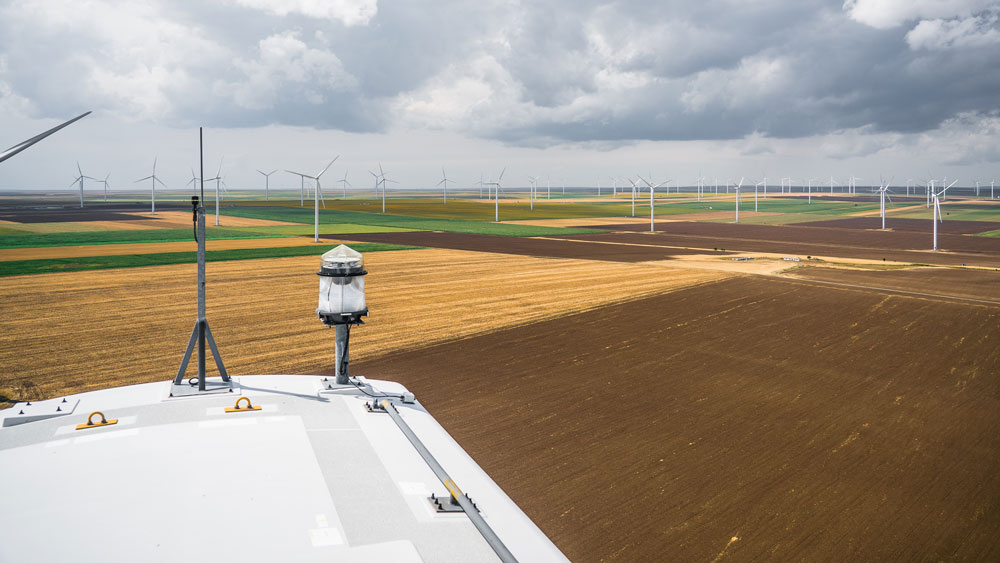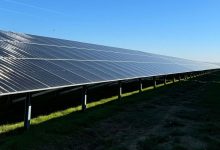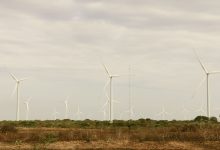Impact of COVID-19 on Renewable Energy Auctions
In a recent Policy Brief, AURES assesses the impact of COVID-19 on Renewable Energy Auctions.
AURES is a European research project on auctions for renewable energy support (RES) in the EU. The general objective of the project is to promote an effective use and efficient implementation of auctions to improve the performance of electricity from renewable energy sources in Europe.
According to the above-mentioned report, the COVID-19 pandemic and its economic and political disruption have influenced renewable energy (RES) auctions as follows:
- RES procurement: Decreased energy demand, resulting in potentially lower short-term demand for RES and potentially more EU Member States meeting their 2020 RES targets without additional policy action.
- RES project delays and auction delays: Disruptions in global supply chains and national permitting procedures might endanger project realization and increase penalties. Several EU Member States have prolonged realization deadlines while others have postponed or cancelled auctions.
- RES finance: Higher RES financing risks through increased country and policy risk, less availability of RES project finance with shift to government-backed lending for corporations.
- Wholesale market risk exposure: Falling wholesale market prices pose significant challenges for projects without market premiums with sufficient floor prices (e.g. merchant plants and plants with low fixed premium).
Mid-term impacts on RES auctions are uncertain and climate-friendly economic stimuli packages could and should increase public clean energy spending and access to finance. Governments might already consider the following immediate adjustments in their RES auction design:
- Extending realization deadlines of awarded projects and for upcoming auctions;
- Allowing for longer award periods & increasing digitalisation of auction procedure;
- Adjusting auction schedules but (if possible) avoiding downward auction volume revisions.
Impact on RES procurement
Auctions for renewable energy (RES) support are market-based, competitive bidding processes to identify the most appropriate RES projects to be constructed within a certain time frame and allocate support payments to these projects. Most EU Member States have introduced RES auctions that seem to have resulted in strong price decreases.
The COVID-19 pandemic, its consequential lock-down of economic activity, the increased risks for investors and fears about an economic recession, have had profound immediate effects on the energy sector. Power demand has strongly decreased and there is high uncertainty for the mid-term. Industry associations worry that a reduced power demand and tighter budgets could reduce new auction volumes of RES projects.
Environmental groups, industry associations and international organizations such as the International Energy Agency and the International Renewable Energy Agency, however, call for an increased investment in clean energy. A growing number of EU Member States stresses that the Green New Deal should be central to a resilient recovery after COVID-19. National economic-stimuli packages might include sustainability criteria, provide additional funding or credit lines to clean energy and be targeted to fund more climate action. A discussion on linking air pollution to higher COVID-19-related deaths might also increase pressure on exiting coal generation and shifting to RES faster.
Some governments might consider reducing new RES auction volumes, but this would problematic. Long-term planning certainty is particularly important for the renewable energy industry and even more so in times of uncertainty. Aiming for high levels of competition to achieve low prices in RES auctions, countries usually seek to provide investors with a multi-year auction schedule, including capacity volumes per technology.
The Spanish wind industry stressed the urgency to publish reliable auction schedules during the Covid-19 crisis. Adjusting such scheduled auction volumes downwards due to lower short-term energy demand would further endanger an already challenged industry – first intensify competition (due to oversupply) and finally leading to concentration, and thus erosion of competition and higher RES prices in the midterm. While governments might be warried to avoid short-term end-consumer price increases, maintaining high volumes of RES auctions has the advantage that costs to consumers in general do not occur at the time of the project award but are stretched as energy payments over 15 to 20 years.
Considering the nationally binding 2020 RES targets for the EU Member States, the strong reduction of energy demand leads to a distorted picture that may impede some Member States to take additional measures to push RES deployment. According to projections made in 2019, some countries were at risk of falling short of their 2020 target as policy initiatives appeared insufficient to trigger the required RES energy volumes. The impact of COVID-19 on the energy sector may change that picture. As the overall energy demand is decreased, the relative share of RES increases, especially in the electricity sector. This helps Member States to clear the 2020 hurdle without taking additional action. As a consequence, Member States may refrain from taking additional measures in 2020 or in the following years. Nevertheless, the 2020 targets are also binding beyond 2020, as Member States shall not fall below the 2020-threshold in their trajectory towards 2030. Once the economic activities pick up, so should the RES. Member States should therefore feel encouraged not to rest on a unique COVID-19 effect in 2020, but to keep their ambitions high.
Impact on RES project realization
Besides energy demand, the COVID-19 pandemic has significantly disrupted global supply chains. Renewable energy supply chains have also seen strong delays. While the majority of Europe’s wind turbine and component manufacturing sites continue to operate, the global wind industry states that it is experiencing logistical delays. Travel bans are impacting the availability of construction experts. Solar PV in Europe is affected through supply chain interruptions for modules mainly from China, although some production has already rebounded. Planning authorities are also affected by the shutdown and permits can be delayed.
These interruptions may cause developers to miss project realization deadlines of already awarded projects and face financial penalties. As a consequence, industry groups such as Wind Europe or the German PV association have called on governments for flexibility on project realization deadlines. For upcoming auctions, the Spanish Wind Energy Agency however stresses the importance that project are realized within the established realization deadlines, outlining that investment and employment into renewable energy usually do not occur immediately with the award of the auction, but rather in the project realization.
Delay of RES auction execution
Several governments in Europe have adjusted the project realization dates of already awarded projects or of upcoming auctions. In Germany, the auctioning authority BNetzA prolongs the realization deadlines of awarded projects if bidders can proof delays of component delivery or permits, albeit it remains to be seen whether this provides enough legal certainty for investors. France has also announced to extend realization deadlines. Greece adopted a Legal Act which prolongs the realization deadline by six months for RES projects with realisation deadlines on or before 30 June 2020, while projects with realization deadlines between 1 July and 31 December 2020 receive a four-month extension. Accordingly, the expiration dates for the necessary licenses and grid connection offers have been prolonged by four to six months.
Other countries have postponed planned auctions, such as France for solar (by an average two months), Ireland for solar (by 28 days) and Portugal for solar (paused). France has split the volumes for both the onshore wind and PV auctions foreseen in July, auctioning one third of the initial volume in July and the remaining two thirds in November. In Slovakia, the first RES auction round was cancelled on 1 April and its design might consequently be changed by the new government. Some countries that went ahead with their planned auctions nevertheless witnessed promising participation and prices, with Greece awarding a 200 MW solar project at a record-breaking tariff of EUR 0.04911/kWh. The Netherlands has also kept to the deadline for its wind offshore auction end of April.
Impact on Renewable Energy Auctions support project finance
While the mid-term consequences of COVID-19 on project financing are difficult to predict, the disruptions caused by the pandemic might have a significant impact on financing risks and capital markets. Interviews of the AURES consortium with banks have shown higher risk awareness and hesitance to provide capital.
Financing risks might be affected through new country and policy risks. Country risks can increase because of the economic shut-down, expected long-term economic challenges and public debt downgrading country ratings. Policy risks may emerge when policy makers change existing policies, postpone support measures, actions or auctions, especially if societal support for the energy transition may decrease during an economic crisis. In some countries where in the past governments reacted to economic crisis with retroactive measures on RES support, there are concerns of another retroactive change. Turmoil in capital markets can also affect RES financing. As banks shift lending to government-backed loans for corporations affected by COVID-19, the availability of capital for RES project finance decreases and costs increase. Companies developing projects through balance sheets might be able to take advantage from government-backed loans, but some may be affected through devaluation of assets and might face further hurdles to balance sheet financing as results of tighter balance sheets. This effect is expected to be most severe for developers and owners with high market price exposure. As governments are considering further economic relief packages, green growth activities could however ease the availability of green finance for RES. New measures might include access to low-interest financing, government-backed guarantees and in general more favourable investment environments for the RES sector.
Impact of decreasing wholesale market prices
Falling RES costs and the expectation of increasing mid-term power prices (driven by less coal and the electrification of transport and heating) has sparked a debate of whether revenues from the whole sale market only might be sufficient and whether RES auctions awarding guaranteed minimum prices for power will still be needed. While the mid-term price-impact of Covid-19 still needs to be further assessed, fallen wholesale market prices, with power now trading below 25 EUR/MWh in most parts of Europe, and potentially strong fluctuations, are challenging merchant plants that do not receive a market premium. Similarly, fixed premium schemes that do not provide a significant floor price are more challenging than floating premiums that provide such a floor. These developments could press Member States to continue RES support schemes that guarantee floor prices for RES to ensure that they comply with their RES target.
How to adjust the RES auction design
Countries should assess and monitor the risk that COVID-19 and the lock-down pose on project development cycles and risks. As short-term measures, auctioning authorities might implement the following:
Extending realization deadlines of awarded projects and for upcoming auctions
- The extension period should be tailored to local circumstances, but at least consider the time of the lockdown. The success of the measure will also depend on whether the expiration date of permits allows a delay in project completion.
- Auctioning authorities might choose to extend realization deadlines automatically and uniformly or only based on application and proof of factors causing delays (e.g. delayed component delivery). An automatic and uniform extension would ease the administration and provide legal certainty to developers.
- Authorities should avoid excessive extensions of the realization deadline and avoid situations in which individual concession owners start to renegotiate deadlines and apply for individual extensions – this might unnecessarily block auctioneer capacities and create bureaucracy. The length of deadline extensions could consider the length of the lock-down. Too-long extensions in the realization period could pose challenges for the order pipeline of component manufacturers. Prolonged realization deadlines could in principle incentivize some project developers to delay project realization to take advantage of falling component prices. However, in a volatile price environment many developers might find this too risky.
Allowing for longer award periods & increasing digitalisation
- Auctioning authorities that require physical submission and evaluation of bids (e.g. Germany) can be challenged in a lock-down and might need to change their evaluation process or allow for more evaluation time. Auctioning authorities that allow for a web-based submission and evaluation of bid are less affected. Such digital solutions could also be provided at planning authorities responsible for the issuance of permits.
- Auctioning authorities should consider transferring bidder interaction to secure, digital solutions. Digital submission platforms, online bidder-auctioneer interactions, web-dialogue meetings and accepting e-mail communication have been successfully implemented by RES auctioneers across the world.
Adjusting auction schedules but (if possible) avoiding downward auction volume revisions
- Several EU Member States have halted or postponed auctions as reaction to the COVID-19 crisis. While some countries have codified auction schedules in law that cannot be easily changed, auctioning authorities in other countries are more flexible to adjust auction schedules.
- Delaying auctions can be an effective short-term measure to avoid immediate adverse consequences for auction outcomes. Unnecessary delays and cancellation of auctions might however not only impact the reaching of RES targets, but also cause interruptions in the supply and project development chains and adversely impact auction outcomes in the medium to long-term. While power demand is dropping in the short-term, several EU Member States were not on track to fulfil their RES targets and should ensure to maintain the RES project development pipeline.
- While auctions can be postponed in reaction to the COVID-19 supply chain and construction disruptions, EU Member States should in general refrain from adjusting RES auction volumes downwards in already announced auction schedules. The impact of COVID-19 on RES investments needs to be continued to be monitored so that countries can react should competition in auctions be significantly reduced.







